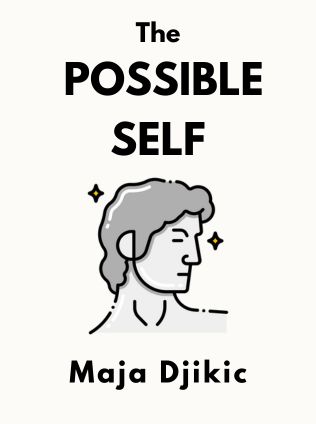
The Possible Self
A Leader's Guide to Personal Development
By Maja Djikic
Published 03/2024
About the Author
Maja Djikic is a renowned personality psychologist and expert in adult development. With a rich academic background and a keen focus on personal growth, Djikic has dedicated her career to understanding the intricacies of human development. Her work aims to bridge the gap between the innate potential within individuals and the practical steps necessary to achieve it. In her book, The Possible Self: A Leader’s Guide to Personal Development, Djikic offers profound insights and actionable strategies to help individuals unlock their potential and navigate the complexities of self-change.
Main Idea
In The Possible Self, Maja Djikic explores the concept of self-development as a dynamic and lifelong process. She emphasizes that development is not limited to any specific stage of life but continues until our last breath. Djikic introduces the concept of the "Wheel of Self," which consists of five interrelated parts: motivation, behavior, emotion, mind, and body. For meaningful and lasting change, all these parts must move together in harmony. The book addresses common obstacles to self-change and provides techniques to overcome them, helping readers transform into their best possible selves.
Table of Contents
- The Wheel of Self
- Motivation: Connecting to Core Wants
- Behavior: Beyond Willpower
- Emotion: Interpreting the Signals
- Mind: The Three Minds Working Together
- Body: The Embodied Past
The Wheel of Self
The self can be visualized as a wheel with five parts: motivation, behavior, emotion, mind, and body. When these parts work together seamlessly, self-development happens naturally and effortlessly. However, when the wheel stalls, attempts to change often lead to frustration and failure. Djikic highlights that a common mistake is focusing solely on changing behavior without addressing the underlying issues in motivation, emotion, mind, and body. She asserts that lasting change requires a holistic approach where all parts of the self are aligned and moving together.
"When the Wheel of Self is moving well, all five parts of the self are in harmonious, developmental motion, seamlessly supporting the change." - Maja Djikic
Motivation: Connecting to Core Wants
Wants are the driving force of our motivational system. Djikic differentiates between core wants, which are fundamental to our development, and peripheral wants, which often distract us from our true goals. Core wants are deeply rooted and fulfilling them leads to lasting satisfaction. To connect with our core wants, we must delve deep into our beliefs and constructs that have formed since early childhood. Effective constructs are those that align closely with our core wants and can be acted upon directly.
"Our ability to fulfill our potential depends on holding on to the invisible thread that connects us to our core wants." - Maja Djikic
For example, if our core want is self-respect, superficial achievements like buying an expensive watch may provide temporary satisfaction but do not address the core need. Instead, acting in ways that align with our values and true self will lead to genuine self-respect.
Behavior: Beyond Willpower
Changing behavior is often seen as the key to self-improvement, but Djikic warns against relying solely on willpower. Behavior change must be supported by changes in motivation, emotion, mind, and body. Otherwise, efforts to change behavior will be unsustainable and lead to burnout. Instead, she suggests restoring willpower by doing less of what hasn't worked and engaging in activities that rejuvenate us. This approach helps build the energy needed to sustain long-term change.
"Using willpower on any (or all) other parts of the self is likely to be more effective." - Maja Djikic
- Resting and allowing willpower to replenish.
- Engaging in activities that bring joy and laughter.
- Practicing meditation to expand the capacity for self-regulation.
Emotion: Interpreting the Signals
Emotions are signals that tell us where we stand in relation to our wants. Negative emotions, while uncomfortable, are important indicators that something needs to change. Djikic emphasizes the rational nature of emotions and their role in guiding us towards our goals. She advocates for approaching rather than avoiding negative emotions, as they hold the key to understanding and fulfilling our wants.
"Don't just feel me, DO something!" - Maja Djikic
To effectively process emotions, Djikic suggests a four-step approach:
Sign up for FREE and get access to 1,400+ books summaries.
You May Also Like
The Subtle Art of Not Giving a F*ck
A Counterintuitive Approach to Living a Good Life
By Mark MansonRich Dad Poor Dad
What the Rich Teach Their Kids About Money - That the Poor and Middle Class Do Not!
By Robert T. KiyosakiHow To Win Friends and Influence People
The All-Time Classic Manual Of People Skills
By Dale CarnegieFreakonomics
A Rogue Economist Explores the Hidden Side of Everything
By Steven D. Levitt and Stephen J. Dubner



















